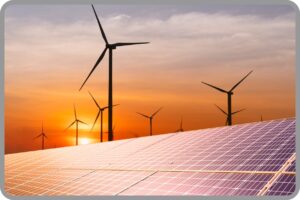Clean Energy Milestone: A Step Towards a Sustainable Future
In recent years, the world has witnessed significant advancements in the pursuit of clean energy. As countries continue to combat the devastating effects of climate change, there has been a collective push toward renewable energy solutions. One of the most exciting developments in this movement is the achievement of several clean energy milestones that mark the global transition to sustainable energy systems.
But what exactly is a clean energy milestone, and why is it so important for our future?
Understanding Clean Energy Milestones
A clean energy milestone refers to a notable achievement in the use of renewable energy sources, such as solar, wind, hydro, and geothermal power, to generate electricity and heat. These milestones serve as benchmarks in the ongoing effort to replace fossil fuels with environmentally friendly alternatives. By transitioning to clean energy, we reduce our dependence on carbon-emitting sources, mitigate environmental damage, and work towards achieving global sustainability goals.
Some key clean energy milestones include:
-
Record-breaking renewable energy production: Many nations are now generating more power from renewable sources than ever before, with wind and solar energy seeing a surge in installations.
-
Major investments in green technologies: Governments, corporations, and individuals are investing billions in clean energy technologies, from solar panels and wind turbines to electric vehicles and energy storage systems.
-
Sustainability commitments from global leaders: Countries are setting ambitious targets to achieve carbon neutrality by mid-century, with clean energy playing a crucial role in these plans.
-
Innovation in energy storage: With advancements in battery technology, the storage of clean energy has become more efficient, allowing for more reliable renewable power grids.
The Impact of Clean Energy Milestones
As nations hit these clean energy milestones, the benefits are far-reaching. The environmental impact is obvious—clean energy dramatically reduces greenhouse gas emissions, improves air quality, and helps preserve ecosystems. However, the economic and social advantages are just as significant.
-
Job Creation: The clean energy sector has proven to be a major job generator. From research and development to manufacturing and installation, millions of jobs are being created in renewable energy industries worldwide.
-
Energy Independence: By investing in domestic renewable resources, countries can reduce their reliance on imported fossil fuels, improving energy security and reducing geopolitical vulnerabilities.
-
Health Benefits: Clean energy reduces the harmful pollutants associated with burning fossil fuels, which can improve public health by lowering rates of respiratory diseases and other health problems linked to pollution.
-
Cost Reduction: As technology improves, renewable energy systems have become more cost-effective. The prices of solar panels, wind turbines, and batteries have dropped significantly, making clean energy more accessible for both individuals and businesses.

Clean Energy Milestones Around the World
Around the globe, nations are making impressive strides in their clean energy goals. For example:
-
Denmark: Denmark has long been a leader in clean energy, and it recently achieved the milestone of producing 50% of its electricity from wind power. The country is now aiming to phase out fossil fuels by 2050.
-
China: As the world’s largest producer of solar energy, China has set ambitious goals to reduce its carbon footprint. The country recently reached a significant milestone by installing over 50 gigawatts of solar capacity in a single year.
-
United States: The U.S. has made substantial progress in wind and solar energy production, with states like California and Texas leading the way. The U.S. government has also committed to reducing emissions by 50% by 2030, relying heavily on clean energy to meet these targets.
-
Germany: Germany’s Energiewende (energy transition) has made impressive progress, with the country generating over 40% of its electricity from renewable sources in 2020.
The Road Ahead
While hitting these clean energy milestones is undoubtedly a cause for celebration, there is still much work to be done. The global transition to clean energy will require continued innovation, investment, and collaboration at every level—from local communities to international governments.
Future milestones may include:
-
100% renewable energy grids: Several countries are on track to run their electricity grids entirely on renewable energy.
-
Breakthroughs in clean transportation: The electrification of the transport sector, including electric vehicles (EVs) and cleaner public transit, is essential for a sustainable future.
-
Energy storage revolution: Advances in energy storage will make it possible to store clean energy more efficiently, reducing waste and making renewable energy available 24/7.
Conclusion
The achievement of clean energy milestones marks a crucial turning point in the battle against climate change. These milestones represent not just the progress we’ve made but also the immense potential of clean energy to shape a more sustainable, equitable, and prosperous future for all.
As we continue to push the boundaries of what is possible in renewable energy, we can look forward to a world powered by clean, reliable, and affordable energy. The road ahead may be long, but each clean energy milestone brings us closer to a future free from the harmful impacts of fossil fuels.
